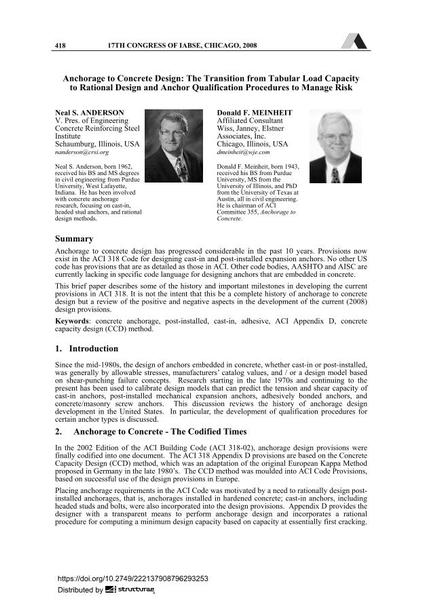Anchorage to Concrete Design: The Transition from Tabular Load Capacity to Rational Design and Anchor Qualification Procedures to Manage Risk

|
|
|||||||||||
Détails bibliographiques
| Auteur(s): |
Donald Meinheit
Neal Anderson |
||||
|---|---|---|---|---|---|
| Médium: | papier de conférence | ||||
| Langue(s): | anglais | ||||
| Conférence: | 17th IABSE Congress: Creating and Renewing Urban Structures – Tall Buildings, Bridges and Infrastructure, Chicago, USA, 17-19 September 2008 | ||||
| Publié dans: | IABSE Congress Chicago 2008 | ||||
|
|||||
| Page(s): | 418-421 | ||||
| Nombre total de pages (du PDF): | 7 | ||||
| Année: | 2008 | ||||
| DOI: | 10.2749/222137908796293253 | ||||
| Abstrait: |
Anchorage to concrete design has progressed considerable in the past 10 years. Provisions now exist in the ACI 318 Code for designing cast-in and post-installed expansion anchors. No other US code has provisions that are as detailed as those in ACI. Other code bodies, AASHTO and AISC are currently lacking in specific code language for designing anchors that are embedded in concrete. This brief paper describes some of the history and important milestones in developing the current provisions in ACI 318. It is not the intent that this be a complete history of anchorage to concrete design but a review of the positive and negative aspects in the development of the current (2008) design provisions. |
||||
